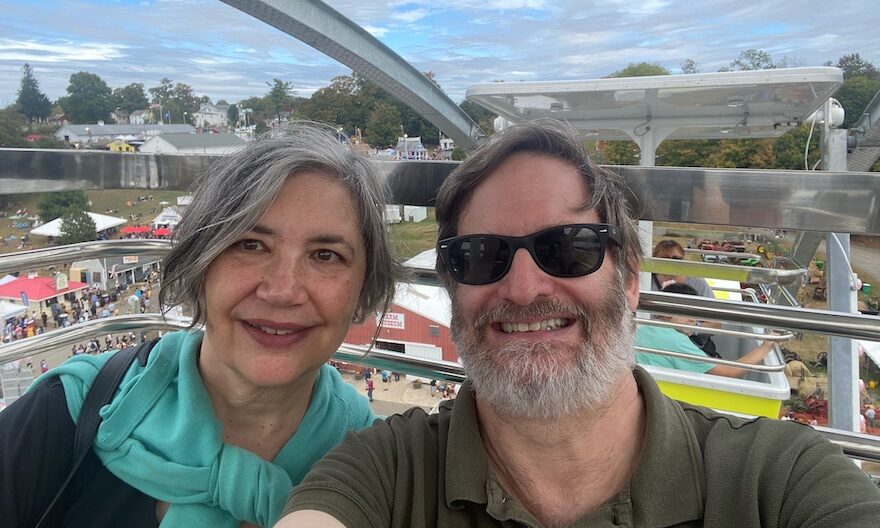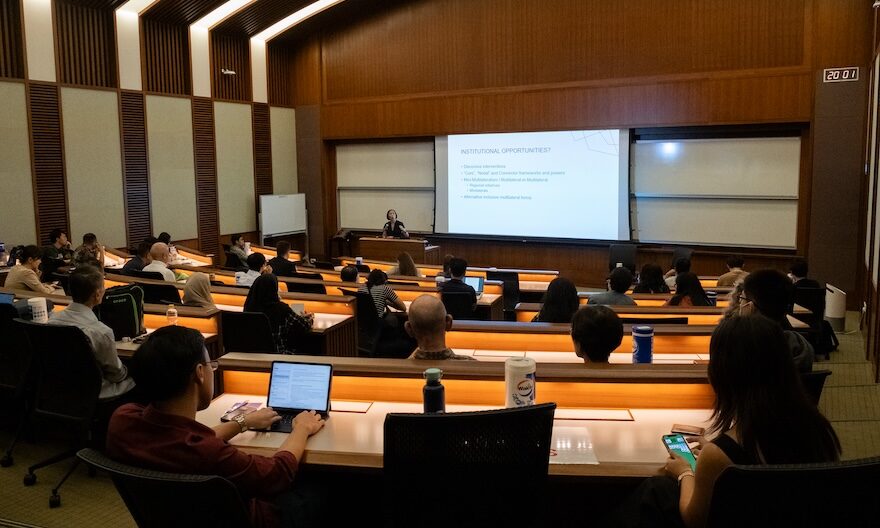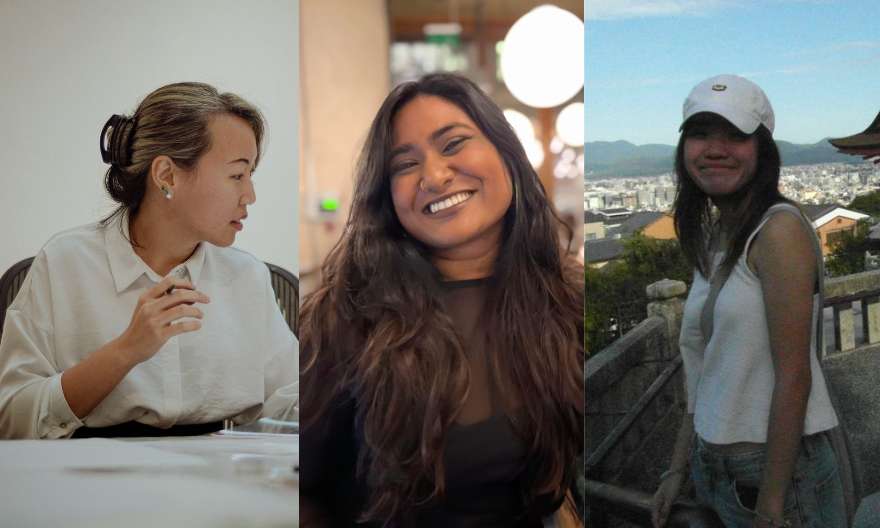Hanjo reignites Yale-NUS arts scene
Yale-NUS faculty and students present Hanjo, a short play by acclaimed Japanese playwright Yukio Mishima

 Scenes from Hanjo, featuring Kristen Oliveiro (Class of 2023) (in white), as Hanako and guest artist Maiya Murphy (in red), as Jitsuko. Images taken by Jon Cancio for Yale-NUS College.
Scenes from Hanjo, featuring Kristen Oliveiro (Class of 2023) (in white), as Hanako and guest artist Maiya Murphy (in red), as Jitsuko. Images taken by Jon Cancio for Yale-NUS College.
Hanjo, a one-act play by one of Japan’s most acclaimed and controversial playwright Yukio Mishima, ran at the Black Box Theatre from 6 to 8 October 2022, becoming the first arts showcase since the onset of the COVID-19 pandemic in 2020.
The play, directed by Yale-NUS Lecturer of Humanities (Theatre) Jonathan Vandenberg, starred guest artist Assistant Professor Maiya Murphy of the National University of Singapore (NUS)’s Theatre Studies Programme as Jitsuko, a lonely artist fixated on the grief and suffering of Hanako, played by Kristen Oliveiro (Class of 2023), whose longing for her lover’s return has slowly driven her to madness. The cast and crew featured a collaboration between talents from Yale-NUS and NUS, as well as costuming by renowned international costume designer Leonard Augustine Choo. Masterfully produced, the thought-provoking piece represents a much-anticipated return to arts showcases at the College, by continuing to foster the craft of theatre for students and the rest of the community.
Hanjo is a loose adaptation of a traditional Noh play, a Japanese dance-drama established around 600 years ago. Kazuto (Kazu) Nakano (Class of 2025) played the jiutai or chorus role, who assists the leading character in the narration of the story. For Kazu, playing the jiutai of this play provided an opportunity for them to explore a traditional artform from their home country of Japan, and bridged the traditional theatre style with Mishima’s modernist take on the play.
 Kazu playing the jiutai role in Hanjo.
Kazu playing the jiutai role in Hanjo.
“I wanted to see how the traditional Noh was incorporated into modern plays and performed in the Western theatre style,” said Kazu, who was especially intrigued by the connections between the Noh play and Mishima’s interpretation. “I’m interested in how culture can be preserved and inherited over generations. Hanjo is an example of regeneration of culture, which is why I’d like to see how aspects of traditional Noh plays appear in this piece.”
Kristen Oliveiro, who played the eponymous character of the play, found herself fascinated by Mishima’s writing style, simultaneously surreal and enigmatic, with a set of multifaceted characters. “I was just awestruck by Mishima’s poetry and the world that he has built in this play. His script is unlike any that I had ever read and I just knew that I wanted to perform it to untangle and somehow be a part of this intricate, solid, world he’s crafted.”
The unique casting choices – to feature professional actors alongside students – proved to be a fulfilling and enriching educational experience for the students.
Kristen reflected, “I have felt a change not only in my technical skills but also in my confidence in performing through working with professionals, and I am so grateful for that.” Jonathan Vandenberg’s artful direction throughout the rehearsal process also challenged the cast to fully unpack their understanding of the play, through collaboration and co-creation, which Kazu found particularly engaging: “We brought our own interpretations of the play to rehearsals, and it’s interesting to see how these different interpretations are woven into one play.”
Tanisha Verma (Class of 2024), who was as the production’s Front of House Manager, was especially pleased at the audience’s response to the play and the community support received. Tanisha noted that there was almost a sold-out show every night, where the “audience was engaged and laughing at all the right moments, and the questions asked in the Question and Answer sessions with the cast post-show were highly insightful and prompted a lot of discussion on part of both the cast and audience.”
Overall, Hanjo has cemented itself as yet another hallmark of Yale-NUS’ arts productions, as well as an avenue for reinterpreting the traditional in new, unconventional ways.




